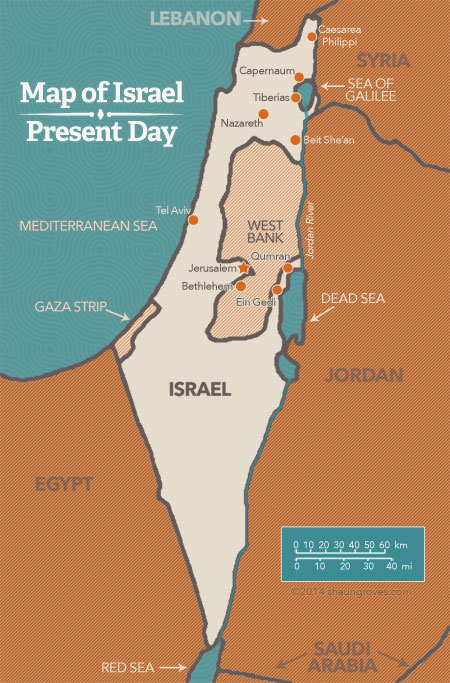 “You are my first customer of the day,” he answers when Becky asks how much the bracelet costs. Becky is the very worst haggler. She listens. She smiles. She never walks away.
“You are my first customer of the day,” he answers when Becky asks how much the bracelet costs. Becky is the very worst haggler. She listens. She smiles. She never walks away.
“In Arab culture,” he continues, “the first customer is good luck for the day.” He speaks through a slight lisp and sincere smile.
“This was my grandfather’s store. He teached me. This is your wife?” he asks me. I nod while eyeing the exit. There aren’t many people in the Old City yet. But there will be. And if we’re going to get our souvenir shopping done before the masses swarm in we need to get going. There’s no time for lessons from grandpa.
“My grandfather said your smile is worth more to me than a thousand dollars.”
(Oh brother.)
The young man in his twenties moves quickly, pulling two stools from the back of his shop and placing them side by side. “You are not customers now. We are friends.”
He tells us to sit. I don’t want to sit. Becky sits. I sit.
“In Arab culture visitors are welcome friends. You come to my house and we drink coffee. Would you like coffee?” Always smiling. Hands always moving.
He gives instruction in Arabic into the telephone and tells us coffee will be “only a minute.”
He’s on his knees in front of us now. Becky asks questions. I grow less impatient and more interested with every answer.
He tells us his name and when I don’t understand he spells it. “O-S-A-M-A,” he says. He must know what I’m thinking because he tells me he isn’t a dangerous man and that he loves all people. “Osama means ‘lion’ or ‘strong man’,” he says and shakes my hand. “That is all.”
Becky asks if the strong man has always lived in Jerusalem and we learn that he doesn’t live here at all. His home is in the West Bank, in the city of Bethlehem, behind walls erected by the Israeli government.
Osama is Arab by race, Muslim by faith, and Palestinian by citizenship. Labels are far more complicated here than American preachers and politicians ever let on.
Every Palestinian is issued a green card or a blue card. Bearers of the blue card are not allowed to venture past the walls. Everyone in Osama’s family has a blue card. But not him. He was born in an Israeli hospital, still considered a Palestinian today, but given a green card which allows him to commute from the West Bank into Jerusalem where he runs his grandfather’s shop now that the walls keep grandfather out.
There’s no anger in his answers and explanations.
In Bethlehem unemployment is above 60%. Osama sells handbags, bracelets and rugs in Jerusalem – mostly to Western tourists – to take care of his family living behind walls Western politicians helped erect.
He makes the same plea as our Arab Christian Palestinian tour guide in Bethlehem the day before. “Please tell America about us.”
The coffee finally arrives, hot and strong. Osama changes the subject. “I thank God for you, friends. I hope you thank God,” he says to me. “Your wife is very beautiful. She is older but grows very beautiful.” We laugh at words that, in Arabic, must be more flattering than in English.
The conversation outlasts the coffee. Osama tells us that the walls are a gift. Muslims and Christians get along much better behind them, he claims. Fighting each other is a luxury that those fighting to survive can’t afford. Poverty forces cooperation. A common enemy unites enemies. A Christian woman in Bethlehem sews his pillows and a Muslim woman down the street embroiders them.
Osama slides samples from a stack. “Everything is like symbol,” he instructs. He points to an element of the design that represents the walls of Jerusalem, then to flowers representing Muslim cities.
I promise to pray for him and his family. He thanks me. He knows we are Christians. But fighting is a luxury.
Becky buys a bracelet and a pillowcase. She pays too much for both.
 Shaun Groves
Shaun Groves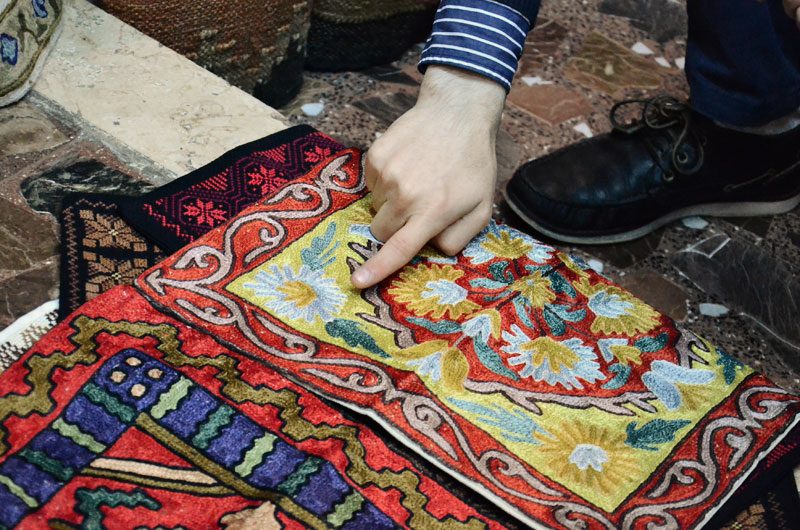
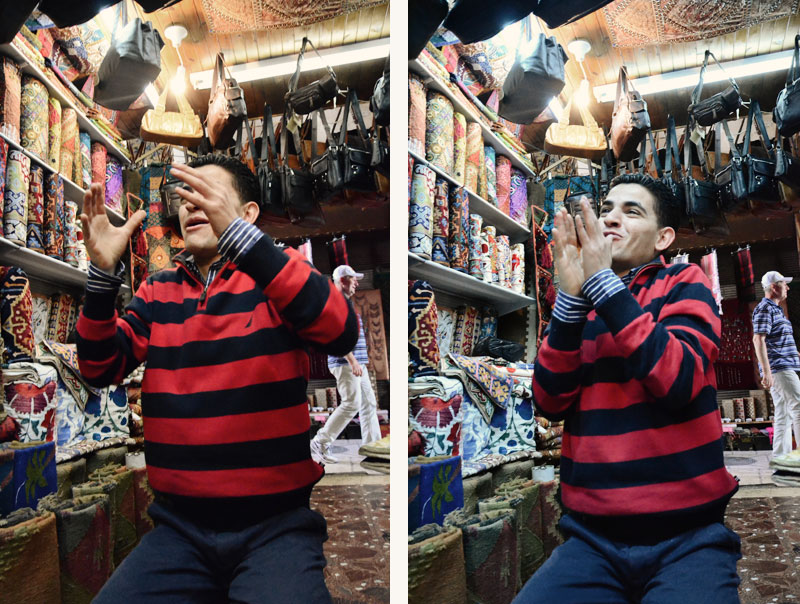
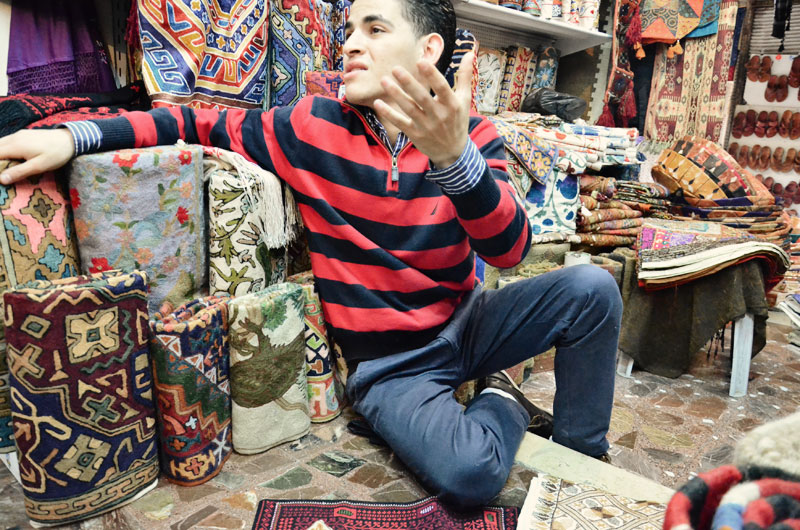
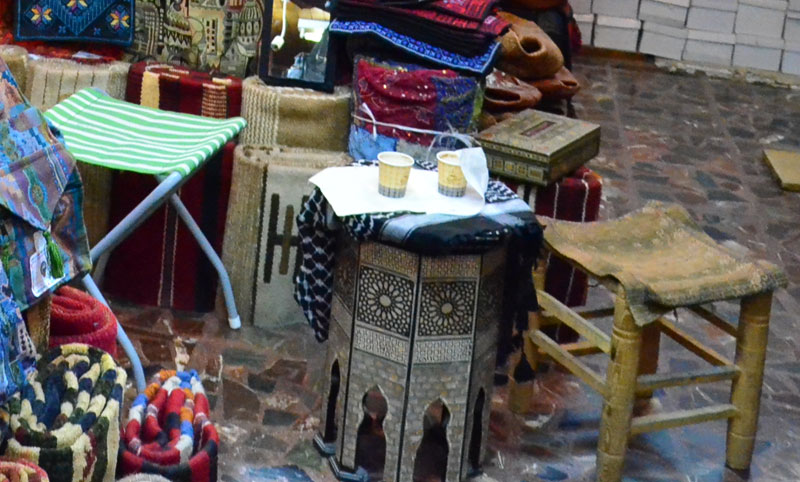
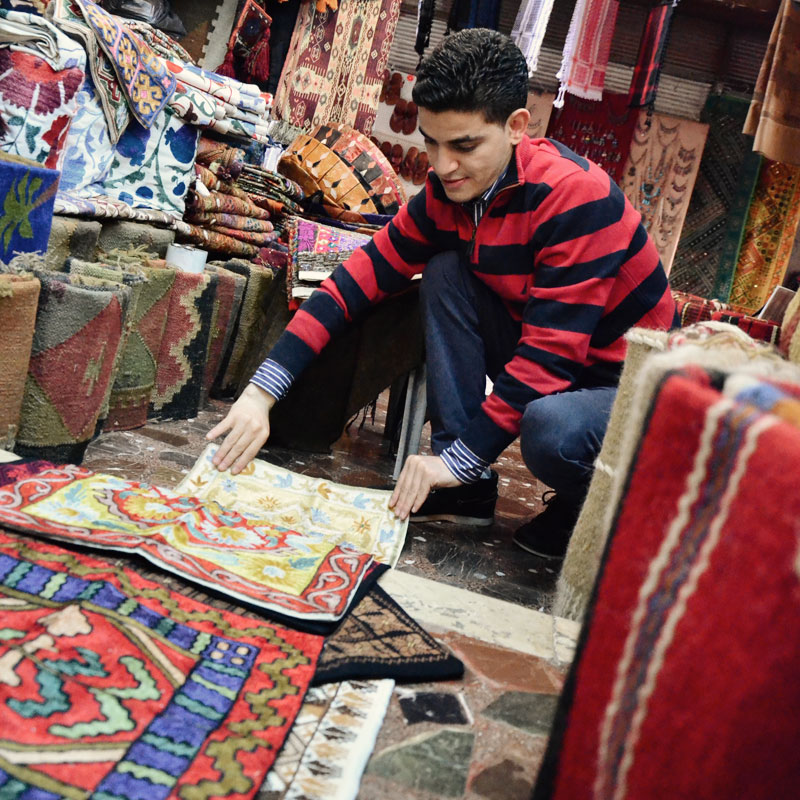


Lindsay says:
I like reading good stories. This was one of them. Thanks for sharing it, Shaun!
karen says:
Taking time. Being in the moment! Wonderful!
Have you by any chance read “Seeking Allah, Finding Jesus”? A FANTASTIC read…one you will appreciate even more after this conversation!
Shaun Groves says:
I haven’t read that. The few books I’ve read on Islam haven’t been all that well written (and a couple were downright snarky). I need to find better books on the subject. Thanks for this suggestion!
Melissa Turner Jones says:
It seems like the more people I meet, the messier just about everything becomes. It’s so much easier to armchair quarterback the world from my Ivory Tower…..but much more loving (and time consuming and emotionally draining and difficult) to look someone in the eye and attempt to understand them and their circumstances.
boomama says:
I love this post – and it makes my heart ache.
Shaun Groves says:
Thanks for that, Sophie. It’s discouraging sometimes that my favorite things to write are so often the least read. So your encouragement is gold.
Kelli says:
This is my favorite post you’ve written in a long time. Which is saying a lot, because I tend to really enjoy all your posts. Just such a great message and do beautifully told.
Amy Dixon says:
I also would have paid too much. The story and the heart are worth it. People really are beautiful,but we are often in so much of a hurry that we miss them completely. Thanks for writing this.
Kris Camealy says:
Wow. I love this, Shaun. This Osama you met reminds me of the Turkish sales people we used to know when I lived in Turkey. They knew we were American, and Christians but they loved us well, and their hospitality always came freely, without a hint of anything ugly or judgmental. Our differences were plain, but as people we connected. I am so thankful you shared this story, it is a good reminder and a needed insight into a world most of us know so little about. I hope you tok a great many more photos, and will continue to write the stories of your travels. They challenge and inspire me, friend.
Michele-Lyn says:
This stirs my heart in so many ways… good ways, but with an unsettling and a tension in my soul.
We allow so many things to occupy our lives, minds, hearts, time, and are left with little room to invite in what is truly missing. I appreciate your voice, and how you write and share in a way that could shape culture, relevantly, truthfully, and gracefully. I hope I can do the same.
Betsy says:
Shaun, I love it when you focus on individuals in a foreign context like this. I would read them all the live long day. Thank you, and please keep on. What a gift!
Thomas D. Dalke says:
What a charming story and encounter. Wish there were more people who were actively engaging with the ordinary people abroad, it helps break stereo-types and biases, on both sides.
donna ham says:
ahhh, this post is the jewel in my reader today! thank you Shaun …. beautiful words.
Kat Lee says:
Loved this…